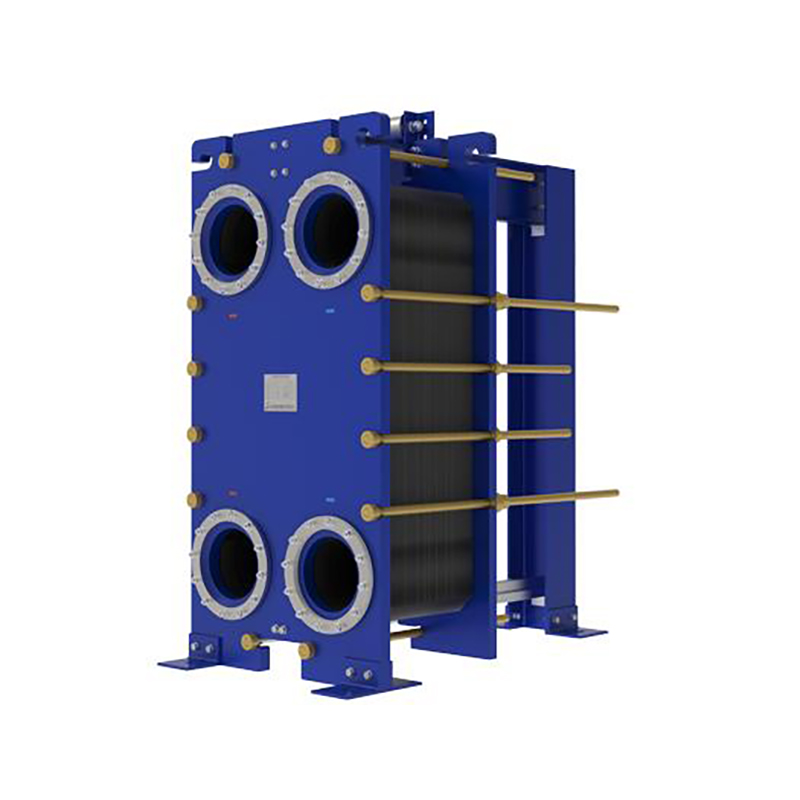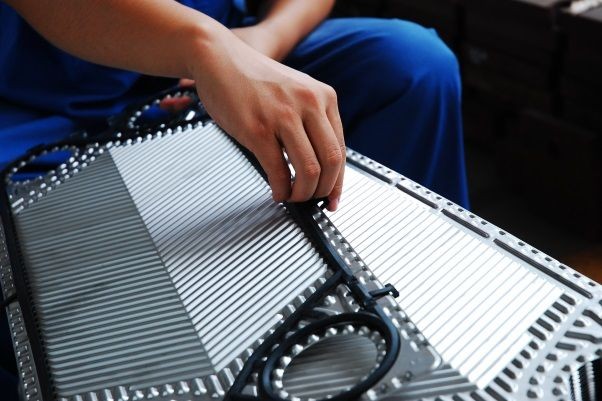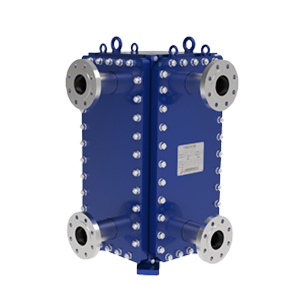5 key roles of plate heat exchanger gaskets.
Plate heat exchanger gaskets perform 5 key roles: ...
More
A water coil heat exchanger is a fundamental component within heating, ventilation, air conditioning (HVAC), and industrial process systems, designed to transfer thermal energy between a water-based fluid and air. These devices are engineered as a series of tubes, typically constructed from copper, aluminum, or stainless steel, arranged in a coil configuration with external fins to maximize the surface area for heat exchange. The core principle involves circulating hot or chilled water through the tubes while air is forced over the finned exterior by a fan. In heating mode, hot water releases its heat to the cooler air passing over the coils, effectively warming the air for space heating or industrial drying applications. Conversely, in cooling mode, chilled water absorbs heat from the warmer air, resulting in cooled and dehumidified air output for comfort cooling or process control. This efficient method of indirect heat exchange makes them a cornerstone of modern climate control and thermal management. They are ubiquitous in applications ranging from commercial building air handlers and fan coil units to industrial heat recovery systems and large-scale manufacturing processes, offering a reliable and controllable means of temperature regulation.
Water coil heat exchangers are highly versatile and their performance is dictated by precise engineering specifications. Key operational data points include the flow rate of water (measured in gallons per minute, GPM), the entering and leaving water temperatures (EWT and LWT), and the corresponding airside dry-bulb and wet-bulb temperatures. The heat transfer capacity is quantified in British Thermal Units per hour (BTU/h) or tons of refrigeration (where 1 ton = 12,000 BTU/h). For instance, a standard commercial air handling unit coil might be designed to handle 60 GPM of 45°F chilled water, leaving at 55°F, while cooling 20,000 cubic feet per minute (CFM) of air from 80°F down to 55°F, representing a cooling capacity of approximately 60 tons. The design also focuses on critical parameters like pressure drop, both on the waterside (often kept below 15 feet of head loss for efficiency) and the airside, to minimize fan energy consumption. Materials are selected based on the application; copper tubes with aluminum fins are standard for clean environments, while cupronickel or stainless-steel constructions are specified for corrosive atmospheres or with certain fluid types to ensure longevity and prevent failure.
The advantages of utilizing water coil heat exchangers are extensive and well-documented, making them a superior choice for many thermal applications. Their primary benefit lies in their exceptional energy efficiency. Water has a specific heat capacity approximately four times greater than air, meaning it can carry significantly more thermal energy per unit volume. This high thermal mass allows for the movement of large amounts of heat with relatively low pumping energy compared to the massive fan power required to move equivalent energy in an all-air system. This efficiency directly translates to reduced operational costs and a lower carbon footprint. Furthermore, water coil systems offer unparalleled design flexibility and precise temperature control. The coils can be custom-engineered in countless row depths, fin spacings, and circuit configurations to meet exact capacity and pressure drop requirements. The use of water as the heat transfer medium also allows for centralization of heating and cooling equipment, such as boilers and chillers, in optimal locations, simplifying maintenance and enabling the use of high-efficiency, large-scale central plants. This centralization is a hallmark of high-performance building design, contributing to significant long-term energy savings and operational reliability.
Quantifiable data from industry sources and case studies consistently reinforces these advantages. Life-cycle cost analyses frequently show that hydronic systems employing water coils can achieve energy savings of 15-30% compared to variable air volume (VAV) systems with electric reheat, primarily due to the elimination of wasteful reheat energy and reduced fan power. The operational stability and precise controllability of the water flow allow for tighter humidity control, which is critical in environments like hospitals, laboratories, and data centers. From a maintenance perspective, water coils are known for their durability and long service life, often exceeding 20 years with proper water treatment and regular cleaning. Their modular nature also means that individual coils within a large system can be serviced or replaced with minimal disruption to overall operations. The ability to integrate seamlessly with energy recovery systems, such as run-around loops or using condenser water for pre-heating, further amplifies their efficiency and sustainability credentials, making them an indispensable component in modern green building strategies like LEED-certified projects.
Select the most popular foreign trade service products to meet your diverse needs
Learn more about the dynamics and professional knowledge of the foreign trade industry

Plate heat exchanger gaskets perform 5 key roles: ...
More
A gasket in heat exchanger seals surfaces, blocks ...
More
API 662 defines standards for plate heat exchanger...
More
Compare top frame plate heat exchanger models for ...
More
User reviews show the american standard heat excha...
More
You can see clear differences between welded block...
MoreSelect the most popular foreign trade service products to meet your diverse needs
Explore more content related to foreign trade services

User Comments
Service Experience Sharing from Real Customers
Michael Chen
HVAC Project ManagerThis water coil heat exchanger has been incredibly reliable in our commercial HVAC system. The heat transfer efficiency is outstanding, and we've seen a noticeable reduction in energy costs. The build quality is robust, showing no signs of corrosion after a year of continuous operation.
Sarah Johnson
Plant EngineerWe installed these coils in our process cooling application six months ago. The performance is exceptional, maintaining precise temperature control for our machinery. The installation was straightforward, and the manufacturer's technical support was very helpful.
David Rodriguez
Facility ManagerA high-quality product that performs as advertised. The water coil heat exchanger integrates seamlessly with our building management system. We deducted one star because the delivery was a week later than initially promised, but the product itself is excellent.
Emily Watson
Mechanical EngineerAs an engineer specifying equipment for data centers, I'm very impressed. The thermal performance and compact design of this heat exchanger are perfect for high-density cooling applications. It has significantly improved the efficiency of our client's cooling loop.